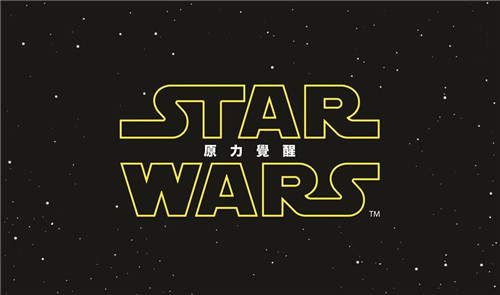
Star Wars: The Force Awakens continued its precipitous decline at the Chinese box office over the weekend. The J.J. Abrams film lost nearly two-thirds of its showtimes to several new releases and dwindling demand from young Chinese city dwellers drove down ticket revenues, which dropped 70% from Saturday and Sunday January 9-10.
After nine days in cinemas, The Force Awakens grossed $96.2 million, its final tally now likely to be more in line with that of Terminator: Genisys ($114 million) or The Hobbit: The Battle of the Five Armies ($121.7 million), rather than—as had been predicted—with blockbusters Jurassic World ($228.7 million) or Avengers: Age of Ultron ($240.1 million).
Filling the void left by an under-performing Star Wars run, local animated feature Boonie Bears III (熊出没之熊心归来) played strongly to family audiences at the weekend, grossing $15.9 million in its two-day debut, out-grossing The Force Awakens on both Saturday and Sunday. Including preview screenings, Boonie Bears III’s total reached $19.8 million.
Boonie Bear III’s $8.5 million Saturday gross was also the biggest opening day for a domestic animated feature, though that record will certainly fall later this month when Kung Fu Panda 3 premieres on January 29.
WePiao (微影时代) and Gewara (格瓦拉)—now China’s second largest online ticketing platform after they merged in December—recently became a shareholder in Fantawild Holdings (深圳华强文化科技集团股份有限公司), the company that owns several Chinese theme parks as well as the rights to the Boonie Bears, China’s most successful animated intellectual property to date.
This investment joins several other moves by WePiao/Gewara into the rapidly expanding Chinese animation industry (Monkey King: Hero is Back, Roco Kingdom series) as it tries to challenge online ticketing leader Maoyan (猫眼). According to the State Administration of Press, Publications, Radio, Film and Television’s annual film report, 60% of movie tickets were purchased online in 2015, and major players are still jockeying for position in the fiercely competitive sector.
Two imported films—Vin Diesel’s The Last Witch Hunter and serial killer thriller Solace—also entered Chinese cinemas this weekend as “buy out” films—imported movies whose copyright holders do not get a cut of box office revenues, but rather are bought out for a flat fee taken up front as they pass through customs.
Despite lackluster reviews from film critics and Chinese social media users, The Last Witch Hunter grossed $9.4 million, helping China become the film’s highest-grossing overseas territory in just three days. Users of culture website Douban ranked the film 5.8/10, while the WeChat group Film Road Sign (影向标), an aggregator of influential Chinese critics, gave it just 4.8/10.
Writing for online film magazine Iris, critic Luo Jin, a.k.a. magasa, gave The Last Witch Hunter 3 out of 10, writing “the premise, which allowed for a mysterious, ancient occupation passage into the modern era through immortality, was interesting, but as a whole the film was boring. There was absolutely nothing to the story; what a complete waste.”
Solace, sold by FilmNation Entertainment to Infotainment China, fared better online—rating a 6.3/10 on Douban and 5.2/10 on Film Road Sign—but worse at the box office, grossing just $4.4 million in four days of release.
—Follow Jonathan Papish on Twitter: @ChinaBoxOffice





